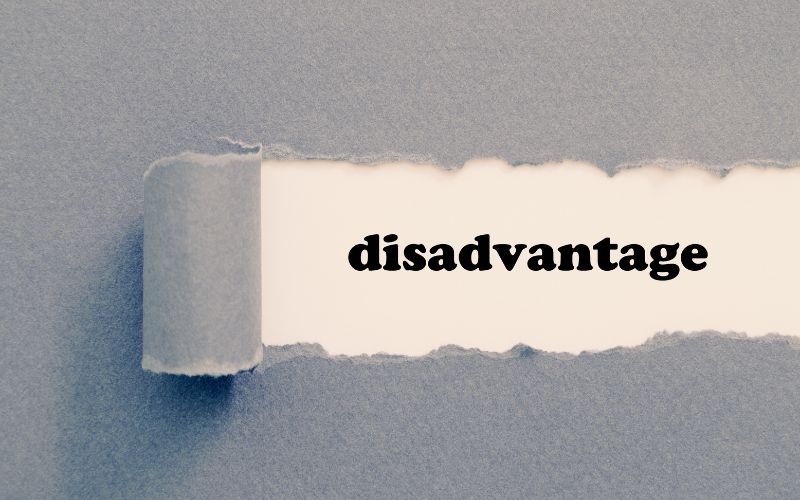What Are The Disadvantages Of Mushroom Coffee?

Disclosure: This post may contain affiliate links. As an Amazon Associate, we earn from qualifying purchases.
Introduction
If you’re a coffee enthusiast, you may have come across the rising trend of mushroom coffee.
Mushroom coffee is a blend of regular coffee and medicinal mushrooms, often marketed for its potential health benefits like improved focus, immune support, and reduced caffeine jitters.
However, before you make the switch, it’s crucial to ask: What are the disadvantages of mushroom coffee?
Despite its benefits, mushroom coffee has several downsides that may not make it the right choice for everyone.
Some key disadvantages of mushroom coffee include:
- Health risks – Potential allergic reactions and medication interactions.
- Taste and palatability issues – Earthy, bitter flavors and a grainy consistency.
- High cost – More expensive than traditional coffee.
- Limited availability – Harder to find in physical stores.
Let’s explore these drawbacks in detail.
What Are The Disadvantages Of Mushroom Coffee?

While mushroom coffee has gained popularity for its potential health benefits, it’s important to recognize that it comes with several drawbacks that might make it an unsuitable choice for some individuals.
Key Disadvantages of Mushroom Coffee:
- Health concerns – Possible allergic reactions and interactions with medications, which could pose risks to individuals with underlying health conditions.
- Unpleasant taste and texture – The earthy, bitter flavor and grainy consistency may not appeal to those who enjoy the smooth, rich taste of traditional coffee.
- Higher cost – Mushroom coffee is significantly more expensive than regular coffee, making it a less budget-friendly option.
- Limited availability – Not as widely available in supermarkets or coffee shops, often requiring online purchases or visits to specialty stores.
For coffee lovers who appreciate the bold, aromatic experience of traditional coffee, switching to mushroom coffee can be disappointing due to its different taste and texture. Additionally, individuals with specific health conditions need to exercise caution, as the medicinal mushrooms in the blend can affect the body’s metabolism and interact with medications.
Now, let’s break down these disadvantages in detail to help you make an informed decision.
Health Risks
Potential Allergic Reactions
Mushrooms are a common allergen, and consuming mushroom coffee could trigger allergic reactions in sensitive individuals.
Symptoms of a Mushroom Allergy:
- Mild reactions: Skin rashes, itching, or digestive discomfort.
- Moderate symptoms: Nausea, bloating, or stomach cramps.
- Severe allergic reactions: Difficulty breathing, swelling, or anaphylaxis.
Who Is at Risk?
- Anyone with a known allergy to mushrooms should avoid mushroom coffee.
- People with sensitive stomachs may experience digestive distress.
- Those who have never consumed medicinal mushrooms before should be cautious and consult a doctor first.
Interactions with Medications
Mushroom coffee is made from medicinal mushrooms such as Lion’s Mane, Chaga, and Reishi, which contain bioactive compounds that may interfere with medications.
Common Drug Interactions:
- Impact on metabolism – Some mushrooms can speed up or slow down drug metabolism, affecting how medications work.
- Blood-thinning properties – Reishi mushrooms have natural anticoagulant effects, which can be dangerous when combined with blood thinners like Warfarin.
- Immune system modulation – Mushrooms can either stimulate or suppress the immune system, interfering with autoimmune disease medications.
- Digestive interference – Mushroom compounds may alter gut bacteria, potentially affecting how the body absorbs medications.
Who Should Be Cautious?
- Individuals on blood pressure or diabetes medication.
- Those undergoing chemotherapy, as mushrooms can interfere with cancer treatments.
- People with liver or kidney conditions, since medicinal mushrooms affect detoxification.
- Anyone taking immune-suppressing drugs, as mushroom coffee may counteract their effects.
- If you take prescription medication, consult a doctor before drinking mushroom coffee.
Taste and Palatability
Unpleasant Flavor
Many coffee lovers find that mushroom coffee has an earthy, woody, and slightly bitter taste.
- The mushroom flavor is distinct, making it harder to adjust to for those accustomed to traditional coffee.
- Some describe the taste as savory or slightly medicinal, which may not be appealing.
- The lack of a rich, roasted coffee aroma can make it less satisfying.
Texture and Consistency
The texture of mushroom coffee is noticeably different from regular coffee.
- It may feel slightly grainy or chalky due to the mushroom powder.
- Some people find it has a thicker consistency, which makes it less smooth than traditional coffee.
- Certain brands leave sediment at the bottom of the cup, which can be unpleasant.
These factors make mushroom coffee less enjoyable for those who prefer a rich, smooth cup of traditional coffee.
Cost and Availability
Expense
One of the most significant disadvantages of mushroom coffee is its high price.
- High-quality mushroom coffee is significantly more expensive than regular coffee.
- Many brands use organic, wild-harvested mushrooms, which raises costs.
- A single bag of mushroom coffee can be twice or three times as expensive as traditional coffee.
For those on a budget, the higher price point can make mushroom coffee less accessible.
Limited Availability
Mushroom coffee is not as widely available as regular coffee.
- Most local grocery stores do not carry mushroom coffee.
- It is primarily sold in health food stores and online markets.
- Buying online often means paying extra for shipping and waiting for delivery.
For people who prefer to buy their coffee locally, the lack of availability is a significant downside.
Conclusion
While mushroom coffee offers some unique health benefits, such as improved focus and reduced caffeine jitters, it’s crucial to take a balanced look at the potential disadvantages before making the switch.
For some, the downsides outweigh the benefits, making traditional coffee the better choice. Others may find that, despite its drawbacks, mushroom coffee aligns with their lifestyle, dietary needs, or wellness goals.
Key Disadvantages of Mushroom Coffee:
- Health risks – Possible allergic reactions and medication interactions.
- Taste issues – An earthy, bitter flavor that many find unappealing.
- Texture concerns – A grainy consistency that differs from regular coffee.
- Higher cost – More expensive than traditional coffee, making it less budget-friendly.
- Limited availability – Harder to find in local stores, often requiring online purchases.
If you are someone who enjoys the bold, rich taste of traditional coffee, switching to mushroom coffee might be a challenge due to its distinct flavor and texture. Additionally, the higher cost and potential health risks may not make it an ideal option for everyone.
However, if you’re looking for a low-caffeine alternative with potential wellness benefits, and you’re willing to adjust to the taste, then mushroom coffee could be worth a try—as long as you consult your healthcare provider first, especially if you take medications or have existing health conditions.
Ultimately, the best approach is to carefully weigh the pros and cons and decide whether mushroom coffee fits into your personal preferences, budget, and health needs.
What do you think?
Would you try mushroom coffee despite its disadvantages? Or do you think the downsides are too significant?
Let us know your thoughts in the comments below!
